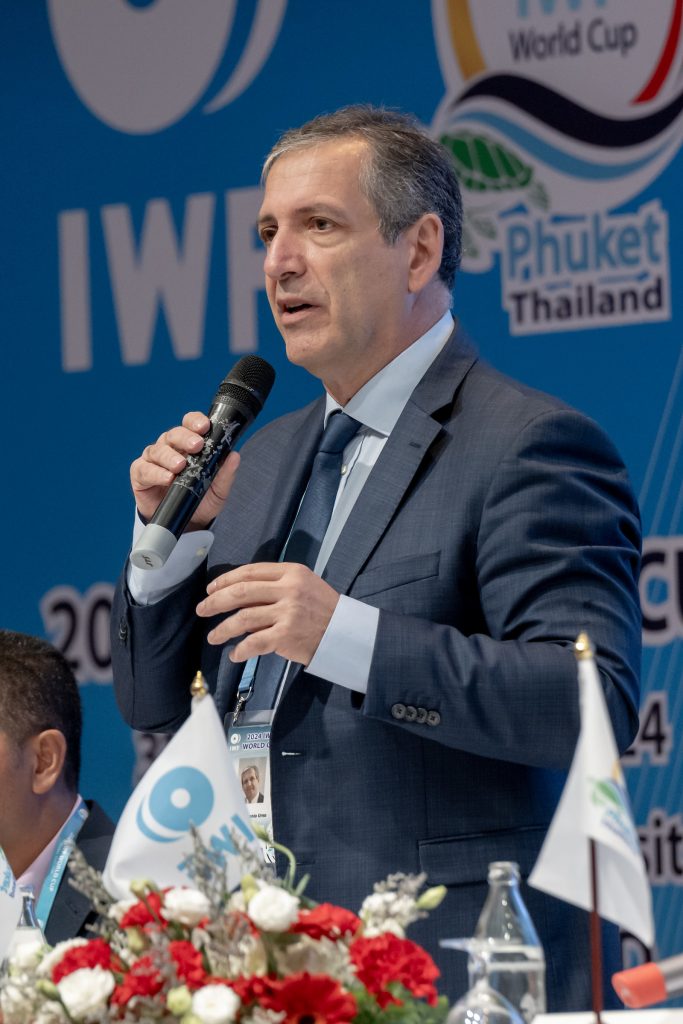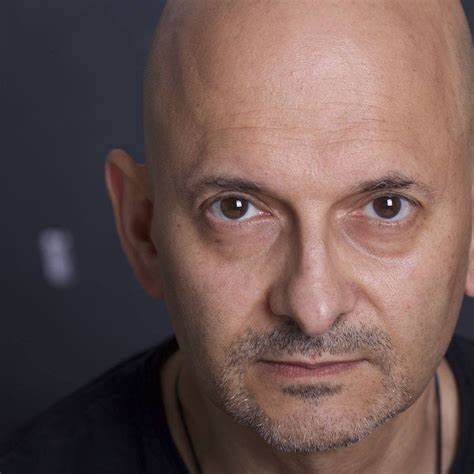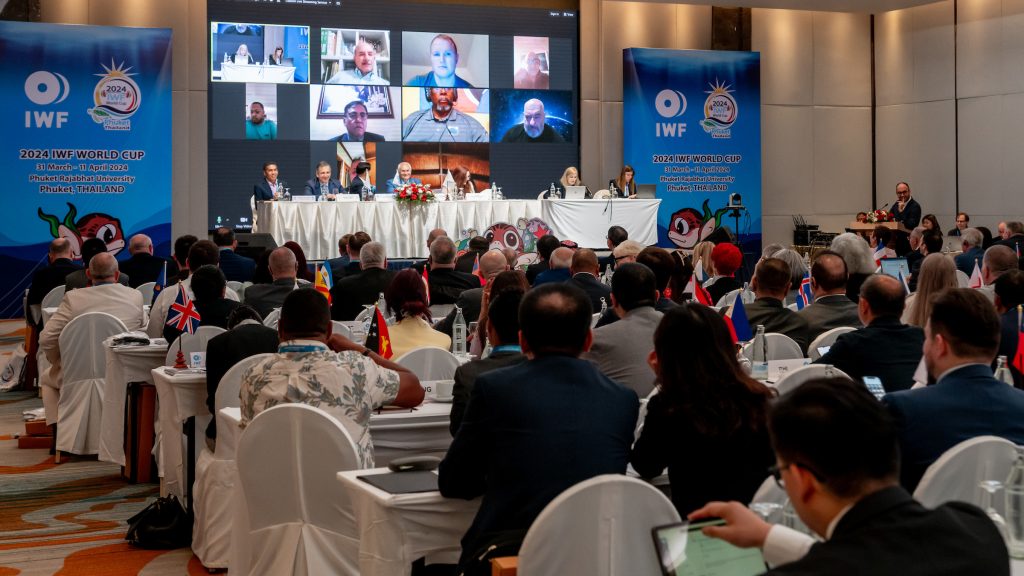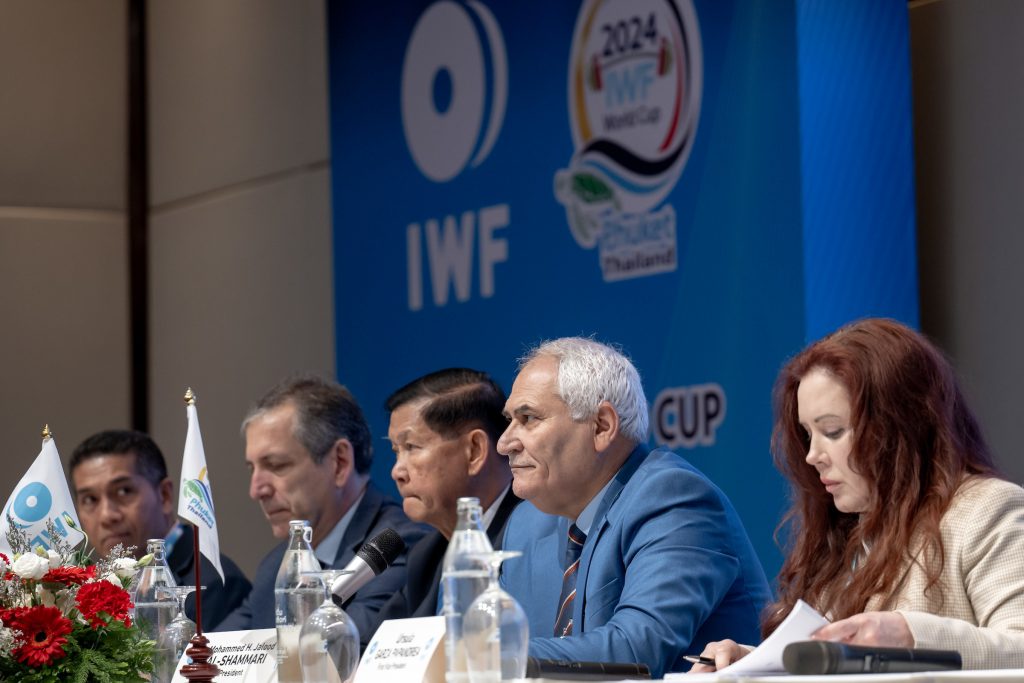IWF Congress approves the first-ever IWF anthem
“An anthem should reflect an identity. This is normally the case with a country, as we are used to national anthems. But it should also happen with all types of organisations, namely in the sports world. That is what I tried to apply for the IWF”. Antonio Urso, the International Weightlifting Federation General Secretary, was obviously happy today, after the IWF Congress approved the melody of the first-ever IWF anthem. His melody, as Urso is also a musician and is the author of the music that will from now on represent the IWF at all protocolar moments.

Antonio Urso, IWF General Secretary – Photo by Giorgio Scala/Deepblumedia
“I wanted something joyful, something that could represent the happy moments in our beloved sport, the satisfaction of a good performance, the importance of being together, of competing in a spirit of fair-play and camaraderie, of enjoying each and every moment we lift a bar. I had to ‘condense’ that in a 1m30s melody that would resonate in a nice harmony for all those listening to the IWF anthem,” adds the IWF General Secretary. “I am too biased to say it, but I believe everyone in the weightlifting family will like our anthem,” he continues.
THE IWF ANTHEM
“It all started last November, when we were in Guadalajara for the IWF World Junior Championships. After listening to the Mexican anthem at the opening ceremony, our IWF Communications manager approached me and said: ‘We need an IWF anthem. You could be the person doing it’. I immediately liked the concept and many ideas started to flow in my head. But, one day in December, the melody came naturally. In no more than 30 minutes, I had it written down,” Urso admits. “Uniting two of my biggest passions in life, weightlifting and music, in this project was obviously a very exciting mission. I take it also as a kind of legacy to the sport that gave me so much,” the IWF General Secretary confesses.
If the melody was relatively easy to find, subsequent work was then needed to make the necessary musical arrangements and find the appropriate instruments to play the anthem. This task was given to Aidan Zammit, a renowned Maltese musician (living in Italy since 1995), who has worked with many national and international artists.
“When Antonio gave me the written melody, the first thing I did was to work out a reharmonised sketch at the piano. I immediately knew what kind of atmosphere and sound I wanted. I needed a combination of positivity, power, and triumph. I decided to take a cinematic approach, inspired by the soundtracks of great action movies, combining traditional orchestration with contemporary electronic elements. The anthem was created initially using virtual instruments and synthesisers in my personal studio. After that, we added a number of real instruments and mixed the recording at Studio 8 in Rome, with the contribution of sound engineer Pino Iodice” Zammit recalls. “I would say that the combination of the orchestra and the electronic sounds brings out the best of both worlds and hope that the result will appeal to different generations of listeners,” he explains.

Aidan Zammit
Asked about the ideal characteristics of such a short musical piece, but with such institutional importance, Zammit is clear: “The melody is obviously the most important element, and Antonio Urso did a great job with that. You need an aura of positivity and adventure with a dose of reality. In such a short time it is important to make things very clear, at the same time keeping everything as interesting and exciting as possible. It is like a very fast trip that quickly takes you through different emotions”.
Zammit’s Maltese roots played an important role in finding the right tone and sonority. “I also grew up on an island where local church brass bands play a big part in social life, so at the back of my mind I always had the sound of the bands playing marches in the streets. They weren’t usually in tune, but they conveyed an air of happiness and power, and were very captivating”.
After writing some music for documentaries about sports, this was the first time Zammit was involved in the creation of an anthem. “It was great fun, and definitely different from other projects I work on. Each situation in my line of work has very different requirements, and you need to take a new approach to almost every job. That’s one of the things I love about making music. Never a dull moment! I don’t know much about weightlifting, but I will be following it now that I have been introduced to this sport,” he concludes.
Other highlights
The Congress also ratified the IWF 2023 Audited Financial Report and the ones received from the various IWF committees: Technical, Medical, Coaching and Research, and Athletes. As with the Executive Board meeting on Friday, an update was also given on the Paris 2024 Games, the Olympic qualification system, and the IWF Refugee Team and Sustainability projects.
 Photo by Giorgio Scalat/Deepbluemedia
Photo by Giorgio Scalat/Deepbluemedia
The IWF gathering also was the occasion to be briefed on the preparation status of upcoming IWF events, namely: the 2024 IWF World Youth Championships in Lima (PER), the 2024 IWF World Junior Championships in Leon (ESP), the 2024 IWF World Championships in Manama (BRN) and the 2025 IWF World Championships in Forde (NOR). Moreover, the recently-awarded 2026 IWF World Youth Championships in Buenos Aires (ARG) and 2027 IWF World Championships in Yerevan (ARM) were also introduced to the delegates by the respective Organising Committees.
 IWF President Mohammed Jalood chairing the Congress – Photo by Giorgio Scala/Deepbluemedia
IWF President Mohammed Jalood chairing the Congress – Photo by Giorgio Scala/Deepbluemedia
After the presentations from the IWF licensed barbell companies (Eleiko, Uesaka, and ZKC), and from the most recent IWF sponsor (SBD), the delegates approved the status of Associate Member for the Federation of Faroe Islands (FRO).
By Pedro Adrega, IWF Communications










